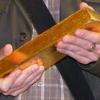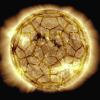Hello Denizens of the NGF thread,
I received a supply of beta-NGF recently.
I spent two days thinking through the details of reconstitution & administration.
I started out by dry-running Resveratrol-Guy's excellent technique of reconstituting
NGF using saline from a nasal dropper bottle.
In summary, Resveratrol-Guy's system is as follows:
=> 1, buy a small, 10ml, (nasal/ocular dropper) bottle of saline.
=> 2. use a (diabetic) syringe to transfer a few milliliters of saline from
the dropper bottle into the vial containing 100ug of beta-NGF
(this will reconstitute the beta-NGF)
=> 3. use the syringe to transfer the reconstituted beta-NGF liquid in the
vial back into the dropper bottle.
=> 4. administer the beta-NGF by dripping X number of drips into
your nasal passages.
Resveratrol-Guy's system is excellent in terms of it's emphasis on sterility.
However i modified it slightly because i felt i would never have sufficient control
over dosaging.
You would always need to know how many drops from
the dropper equal 1ml. When you try to measure this by counting drops
you realise (i realised) that ... any one drop from a saline dropper was
unique, it seemed to me virtually impossible to arrive at a 'standard drop'
whilst the dropper was up your nose.
With practice, you might be able to train your eye and hand to produce
a regular drop....only if you could *see* the dropper bottle.
But you could never do this with the dropper up your nose. In this case
the size of a drop of saline is determined by exactly how much pressure
you apply to the dropper bottle between thumb and forefinger.
I have modified Resveratrol-Guy's system as follows.
As soon as the beta-NGF is reconstituted it begins to break down.
So i ordered 100ug in 5 X 20ug vials. This is more expensive than
ordering a single 100ug vial. However, i want to start with small dosages
and I also want to avoid unnecessary beta-NGF decomposition.
=> 1, buy a small, 10ml, (nasal/ocular dropper) bottle of saline.
=> 2. use a (diabetic) syringe to transfer a few milliliters of saline from
the dropper bottle into the vial containing the beta-NGF
(this will reconstitute the beta-NGF)
=> 3. buy an empty, dark brown, glass dropper bottle, with glass dropper.
(sterilise it by sitting it in freshly boiled salt water for 5 minutes)
=> 4. begin a process of filling the brown glass dropper bottle in the following way:
4a. use the syringe to add 2.5ml of saline into the vial containing the beta-NGF
4b. use the syringe to remove 2ml of saline from the vial, empty this into the brown dropper bottle.
4c. use the syringe to add 2ml of saline into the vial
4d. use the syringe to remove 2ml of saline from the vial, empty this into the brown dropper bottle.
4e. repeat 4c and 4d until brown dropper bottle is nearly full.
4f. empty the final 0.5ml saline from the vial and add to the brown dropper bottle.
=> 5. store brown dropper bottle in the fridge (temp 0-8 degrees)
The maths here is easy.
Let's imagine you reconstituted 20ug of beta-NGF into a total volume of 10ml saline.
That's 2ug beta-NGF per ml.
A standard glass 10ml dropper bottle has a dropper which will hold 1ml when completely full.
(i spent an hour playing around with the dropper bottle to determine that this is true)
In the case of 20ug per vial, that's 2ug per full dropper.
It follows that 1/2 of a dropper will hold a dose of 1ug of beta-NGF.
In my experiments i found that 0.5 ml of saline can be comfortably absorbed nasally with minimal
or nil loses down the back of the throat (and swallowed).
And... i resolved to start my experiments by taking 1ug per day in 0.5 ml saline.
(i may alter this in the future, subject to experience, but for now, it's 1ug in 0.5 saline applied nasally)
I took my first dose tonight.
I haven't noticed any particular effects... but then 1ug per day is a deliberately small dose.
Resveratrol-Guy's experiences show that beta-NGF *can* have psycho-active effects.
If i notice any interesting effects, i will report it to these to this thread.
I've also taken the preparatory step of recording my last 60 days worth of Sudoku results
on an electronic (hand-held) Sudoku game. It's my standard cognitive task.
I'm not expecting any significant reductions in my Sudoku times.... but... there again,
at higher dosages, perhaps reductions will be observed... We'll have to wait and see.
My gratitude goes to Resveratrol-Guy for sharing his thoughts, methods and experiences.
regs
playground.
Edited by playground, 25 December 2015 - 05:47 AM.
















































